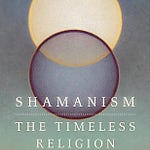If you have a sibling with autism, your future child’s risk for an autism diagnosis is increased by a factor of 2 to 3.5×. Orchid’s whole genome embryo reports can help mitigate your child’s risk by screening for over 200 genetic variants definitively linked to autism and other neurodevelopmental disorders. Discuss your situation with a genetics expert.
On this episode of Unsupervised Learning Razib talks about religion with Ryan Burge, professor of political science at Eastern Illinois University, and author of The Nones: Where They Came From, Who They Are, and Where They Are Going and 20 Myths About Religion and Politics in America. Burge also has a Substack, Graphs about Religion, where he posts the latest data on trends in American society.
First, Razib asks Burge to outline the wave of secularization that has impacted American society over the last 25 years, from its causes to its potential end. Burge points out that mainline Protestantism looks to be on the verge of extinction in the 21st century, while evangelical Christianity saw its high point in the 1980s. Then they talk about the nature of religiosity in America, and Burge asserts that in some ways the rise in “religious nones” is probably just social desirability bias. With the fall of Communism, atheism and irreligiosity lost some of their negative connotations, and more and more people have “come out of the closet” or just accepted their revealed preferences. Razib also asks if Christianity will become a minority religion in the US, and if it is true that people become more religious as they get older. Finally, they discuss extensively the connection between religion and politics and how that drove the rise in defections from Christianity, and Burge talks about how the 21st century will see a normalization of extreme polarization between Christian conservatives and secular Americans.















